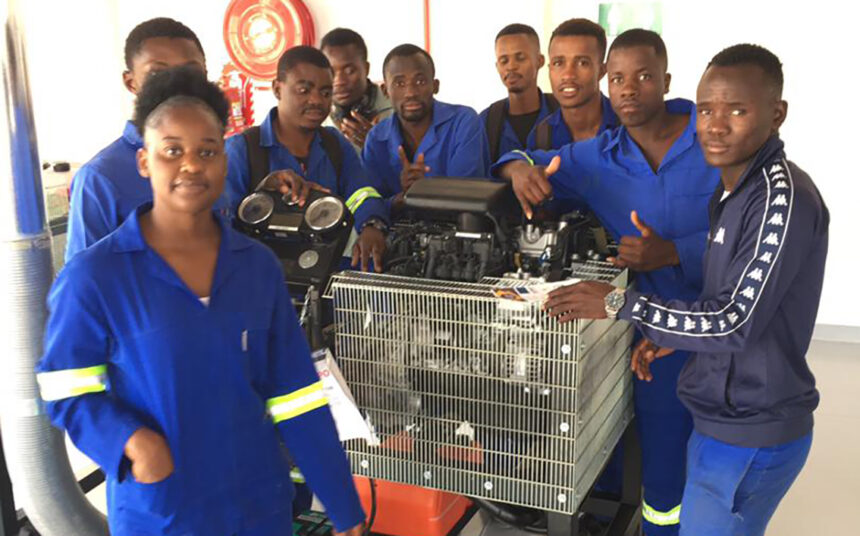Ranjeni Efraim
Vocational training centres are in a central position to address Namibia’s unemployment, which is one of the country’s biggest stumbling blocks toward a modern economy.
Higher education minister Itah Kandji-Murangi said this at the inauguration of three buildings at the Gobabis Vocational Training Centre (GVTC) last week.
She told the gathering that the expansion of the campus is not just a significant milestone for Gobabis, but an initiative that primarily aims to bring needed training services closer to the people of Omaheke at large.
“It is indeed a response to our ongoing strategic macro-economic endeavour to create employment opportunities and support our country’s sustainable development and economic growth,” she emphasised.
Kandji-Murangi further said the Namibian Technical and Vocational Education and Training (TVET) regime is well equipped in delivering the occupational skills required for many jobs in the green hydrogen industry.
The three buildings will cater for training in Automotive and Mechatronics; Leather Craft and Fashion Technology and also the one for Welding and Metal Fabrication.
Construction, which commenced early 2019 and ended mid-August this year, was funded by the German Embassy in Namibia.
On his part, deputy head of the German Embassy Andreas Götze said construction amounted to N$32.8 million, including N$1.2million for the construction of an ablution facility and small workshops for the Community Skills Development Centre on the GVTC premises.
In addition, N$5 million was spent on equipment for the Automotive and Mechatronics, as well as Leather Craft and Fashion Technology workshops.
Götze announced further financial assistance in the form of a 75-Kilowatt PV solar system for the GVTC as part of their goal to achieve energy efficiency and help prevent climate change.
Another German-funded project aims to render financial support to the TVET sector, and an amount of N$121 million has been committed for the initial phase.
“The overall aim of my country’s development cooperation, especially in TVET, is to provide Africa’s youth with opportunities and fair chances to improve their skills, since this is one of the most powerful levers to escape poverty and build a prosperous future.”
The embassy has also assisted financially towards the Valombola, Nakayale and Eenhana VTCs.
Intake for the new courses at the GVTC will commence in January 2023.
The GVTC was inaugurated in August 2017 with 53 learners and currently offers training in office administration, auto-electrics as well as air-conditioning and refrigeration – up to the NQA Level 3 spectrum.
The institution has about 75 trainees.


